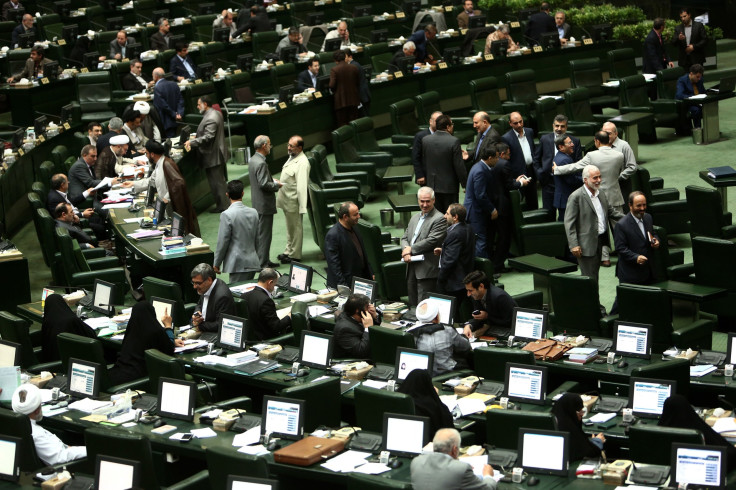Iranian Lawmakers Want Tehran To Seek Compensation From US For ‘Material Or Moral’ Damages

The Iranian parliament on Tuesday passed a bill that would oblige the country’s government to seek compensation from the United States for “material or moral damage” that Tehran has suffered as a result of “hostile” American policies over the past 63 years.
“The Government has the duty to take the necessary measures seeking compensation for material and moral damages caused by the United States,” the bill, passed with 174 votes in favor in the 290-seat assembly, reportedly states.
The bill lists out the “spiritual and material damage” caused by “direct or indirect support of the United States” during the 1953 military coup, which overthrew Prime Minister Mohammad Mosaddeq, the Iran-Iraq war in the 1980s, the destruction of oil platforms in the Gulf, the confiscation of Iranian funds abroad when international sanctions against it were in place, and even the hostile actions of the “Zionist regime” of Israel — which counts the U.S. among its staunchest allies.
Although the parliament did not specify the amount that the Iranian government would now seek from the U.S., Vice President Majid Ansari reportedly said that the country’s courts had “already ruled that the US pay $US50 billion ($68 billion) in damages for its hostile actions.”
The passage of the bill comes less than a month after the U.S. Supreme Court ruled in favor of relatives of victims of a 1983 bombing in Beirut, Lebanon, who have sought $2 billion in compensation from Iran’s frozen funds for its alleged role in the incident.
The move irked Iranian leaders, who have consistently denied involvement in the attack. Iranian President Hassan Rouhani, widely perceived as a moderate who has sought to mend historically frayed ties with the U.S., called the ruling a “continuation of hostilities against Iran” and a “flagrant theft and a legal disgrace.”
“We will not allow the United States to swallow this money so easily,” Rouhani said earlier this month.
Iran has also aired concerns that the U.S. was not doing enough to remove international sanctions that have long crippled Tehran's economy. The sanctions — imposed by the U.S., the United Nations and the European Union in response to Iran’s nuclear program — are now being lifted in a phased manner.
However, banks in the U.S. would still be prohibited from doing business with Iran, and even foreign lenders would remain barred from carrying out dollar-based transactions with the country through American banks — an issue that has rankled Iranian policymakers and the government.
© Copyright IBTimes 2024. All rights reserved.






















